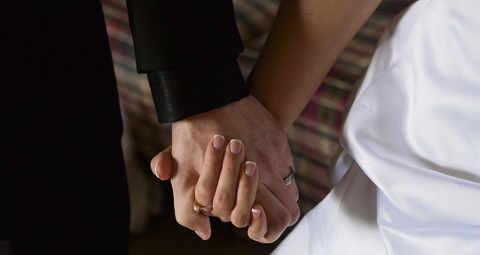BY Ian Dunn | January 3 2014 | ![]() 0 COMMENTS
0 COMMENTS ![]() print
print

Traditional marriage left exposed
Publication Date: 2014-01-03
MSPs reject provisos to protect religious freedoms, clergy and celebrants in new legislation
Scottish politicians have further undermined the future of traditional marriage ahead of voters deciding, this year, whether Scotland will become independent.
Over the festive period, MSPs refused to amend the Scottish Government’s same-sex ‘marriage’ legislation to protect religious freedom, clergy and celebrants. In addition, the Scottish Government has confirmed that tax breaks for married couples would be scrapped in an independent Scotland.
On the Tuesday before Christmas, the Scottish Parliament’s Equal Opportunities Committee voted against proposed changes to the Marriage and Civil Partnership (Scotland) Bill by SNP and Labour members that were aimed at enhancing protections for religious bodies and celebrants, potential foster carers and adoptive parents, and public authority workers who do not support same-sex ‘marriage.’
Opponents to the bill believe that, in its current form, it does not do enough to prevent celebrants being sued if they refuse to carry out same-sex ‘marriage’ services. They also fear that teachers bound by an ethos opposed to the changes, such as those in Catholic schools, will be forced to teach their pupils about same-sex ‘marriage’ and potential adoptive parents could lose out unless they support same-sex ‘marriage.’
SNP MSP Richard Lyle had proposed changes to introduce a clause stating that a potential adoptive parent or foster carer’s views on marriage cannot be taken into account during the fostering or adoption process.
Mr Lyle, who adopted his daughter 31 years ago after a lengthy process, said the law could stop children being adopted
The committee rejected his proposal during its consideration of stage two amendments, along with several other amendments designed to protect religious freedom.
Amendments from SNP MSP John Mason aimed at ‘bolstering protection for those with religious views who do not wish to participate in same-sex ‘‘marriage,’’’ and ‘protecting expression of belief in marriage between persons of different sex’ were also voted down.
Health Secretary Alex Neil lead the opposition to the amendments, and ensured Mr Mason’s efforts would fail.
Further amendments from Labour MSP Siobhan McMahon to give enhanced protections for celebrants, district registrars and public authority workers were also voted down by the committee.
Scotland For Marriage, an umbrella group supporting traditional marriage that has the backing of the Catholic Church in Scotland, said it was encouraged by the level of support the amendments attracted in the committee but it was ‘disappointing’ they were not passed.
“The warnings about problems the legislation is going to cause are not being listened to,” a spokesman said. “The Scottish Government is in cloud cuckoo land if it doesn’t believe these changes are necessary.”
Last month, the group published a list of 10 MSPs with small majorities who are ‘vulnerable to being removed at the next Holyrood election’ as their majorities were smaller than the number of Scots in their constituencies who oppose changing the legal definition of marriage.
Prior to the latest moves against traditional marriage, Michael McGrath, director of the Scottish Catholic Education Service, defended the independence of Catholic schools in Scotland.
“It is important that all schools provide relationship education, which helps young people to be respectful, responsible and loving,” he said. “However, the first ‘school’ where children acquire their values and moral understanding is the family home. Parents need to ensure that their children are not exposed to unhealthy and unwholesome influences and attitudes. Catholic schools can support them with the programmes that they offer.”
In another move, which has been seen as hostile to traditional marriage, the SNP has confirmed it will scrap the £200 a year bonus for married couples if it is elected to lead an independent Scotland.
The UK Government’s £700 million tax break, which comes into force in 2015, will allow the lower-earning partner to transfer up to £1000 of their unused tax allowance to the other.
—This story ran in full in the January 3 edition print of the SCO, available in parishes.











